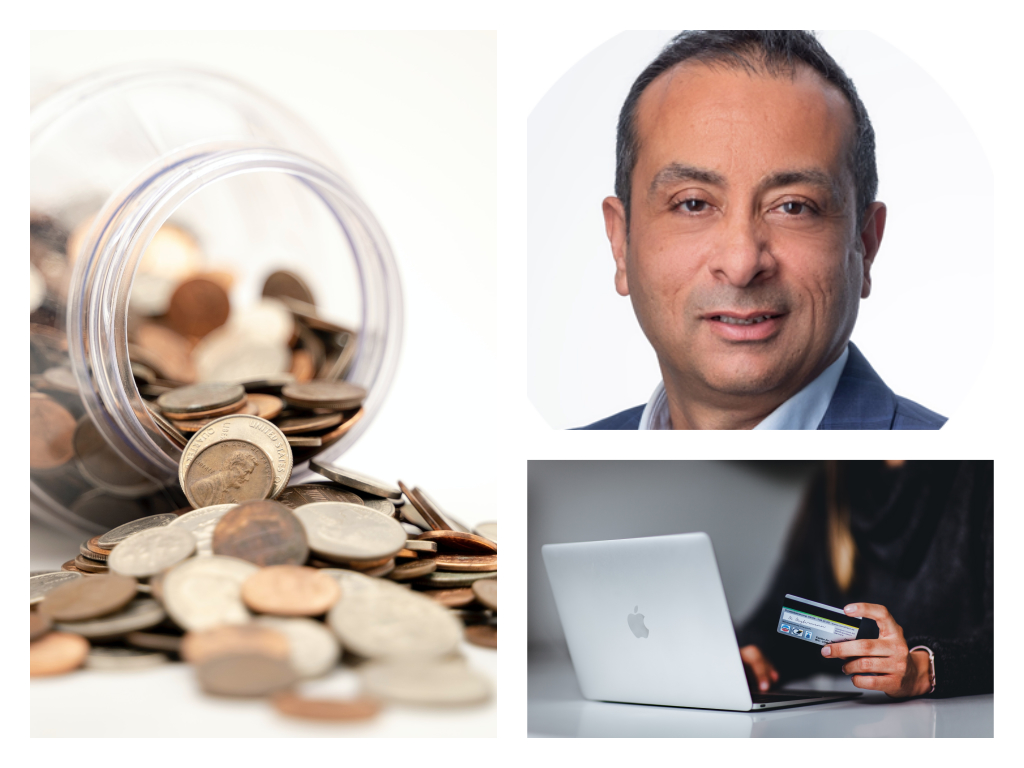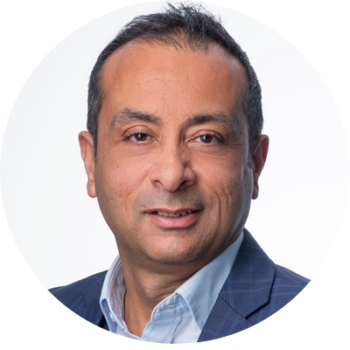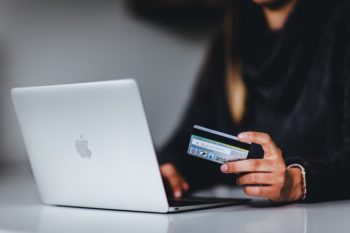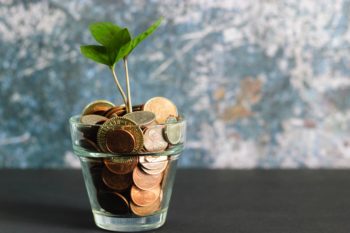
Karim Nanji Of Marble Financial Tells Why You Need To Get A Handle On Your Covid-Debt Before Its Too Late
Lifestyle Jul 30, 2021
With the global economy opening up, this is the time to do a financial reset. Even though certain expenses may have gone down due to lockdown, there is a surprising increase of COVID-related debt happening across all major economies. Karim Nanji CEO of Marble Financial shares tips on how to get a better handle on your COVID-related debt and ways to build up your credit so that you can keep your financial health in check.
Marble Financial is a Canadian online financial service company that focuses on helping Canadians climb out of debt, manage and grow their credit. With various programs including “credit improvement products, guidance and tools to optimize their credit wellness” Marble Financial is also focused ensuring that financial services are accessible to everyone.
Hina P. Ansari: Karim, let’s start at the beginning; tell me about the importance of Financial Technology (Fintech) to the economy and to the consumer?
Karim Nanji: We all kind of live in the Netflix generation. You can see what’s happened with retail and Amazon and things of that nature. So, Fintech has been kind of blossoming, exploding over the last several years in terms of financial technology, financial services, and the economy.
Growing up, I remember opening my bank account, walking into a branch. I remember my son turned 13 and we went to open up a bank account for me, he probably has not been back in the bank sense, right? Online authentication, I.D. verification, transactions are all done online. People are making investments online as well. Consumers — not just here but around the world, are used to getting access to financial services online now. Financial technology companies are here to stay.

HPA: You mention there are three major reasons why people are marginalized from proper financial services. Tell me about the idea of “financial inclusion”.
KN: There are three major reasons why people are on the outside looking in and they’re marginalized is one of the biggest components is lack of financial education and understanding financial literacy. Regardless of whatever your financial status is, there is a lack of sophistication in a lot of areas when it comes to finances. So, people don’t understand. They don’t know what their options are. That’s number one.
2. There’s the inability to create the positive credit report or rebuilt the positive credit report once it’s been damaged. Because if you don’t have access to credit, it’s very challenging. It’s a chicken and egg thing. How do you develop credit if you can’t get it? You need to have that access to credit.
3. There’s the ability to have a bank account. And that’s really not a problem in Canada because we are kind of an advanced country. In other areas of the globe, people don’t have access to a bank account.
Before COVID, 1/3 of Canadians couldn’t walk into a bank and qualify for credit from the lowest cost credit provider because they have poor credit or no credit.
HPA: So this is the demographic you would call being “underbanked”, correct?
KN: Yes. Underbanked is defined by the inability to get access to affordable and efficient financial services that bank customers get access too. So, underbanked can mean a lot of things. You can have Canada, multicultural land with a lot of people coming into Canada every year. And although they may be affluent in their own country when they come here, it’s challenging for them to build credit because their existing credit doesn’t translate. So, there is no global language with credit. Your credit information is very much like, I can get a Ph.D. and get a doctorate in one country, but when I come to Canada or a foreign land, my qualifications don’t count. So, underbanked refers to individuals that don’t have access to affordable financial services through the traditional means.
HPA: Let’s take a look at Canadian spending and savings habits during COVID-19. How has the pandemic affected Canadian spending habits from what you have seen?
KN: Before COVID we were starting to see a rise in delinquencies. In the fourth quarter of 2018, you can start to see that things were changing. We had a lot of consumer spending. Canadians like to borrow for every dollar of income they have. Every dollar of disposable income was $1.75 of that. So, Canadians like to borrow. And it’s very expensive to live in Canada. Wages are not necessarily increasing or are in parallel with the cost of living. Debt was rising, and delinquencies were starting. Now, at that time, 50% of Canadians were living paycheck to paycheck. That doesn’t necessarily mean that they had bad credit.
Then COVID happened, and all of a sudden, we had this phenomenon where it wasn’t necessarily that there were no jobs, you just couldn’t go work. Businesses had to shut down for safety and health reasons. Throughout COVID, the federal government came up subsidies. There was a feeling of calm. Even though you lost your job, you were getting these federal subsidies. Throughout COVID, what I was seeing from studying the stats from both Equifax and Transunion which are the major credit information providers in Canada, that credit health in Canada got better. There was really nothing to spend. On my daily drive to the office and drive back, I always had two Tim Horton runs. All that stuff kind of stopped, right? The movies stopped, the large spending stopped, and people were using some of that excess cash to pay down some debt and do other things. So, generally credit health increased over that period of time.
Now, that we are getting to the point where the subsidies are going to stop. In April, we had a 28% increase in insolvencies month after month. That means there was almost a 30% increase of people realizing that they were insolvent. So, when the subsidies go away, I do believe that a lot more people are going to become insolvent and they will realize that the debt providers will stop their deferral programs, the subsidies are going to stop, the hospitality industry is going to be impacted to some extent.

HPA: You’ve expressed concern with regards to financial wellness in a post-pandemic world. What other concerns do you have now that the clouds are beginning to clear a little bit and we are able to see the near future in terms of our financial situation?
KN: Well, again, we’ve got to rewind back to what it was even before COVID. And I mentioned to you that delinquencies were beginning to rise in the Q4 of 2019. But just before COVID, we were starting to see that people were having a hard time paying their bills and making ends meet. Sooner or later, we’re going to start to see our interest rates grow. What’s going to happen to homeowners already living with the minimum down payment or trying to make payments on something that was really a stretch for them to begin with? Those factors all come back into play again. We will start to see what happens from unemployment in different industries. What happens with travel? In other areas of hospitality and retail, a lot of people are now used to shopping online. What happens with retail and the brick and mortar stores? We don’t know. What happens with restaurants if I just do a mobile pick up? Do they need to staff people as much? Those types of things to think about.
There will be an impact. Not all of it is good. And not all of it is necessarily bad. And we will figure it out as we go. I do expect an impact and a change in the interest rate as well.
HPA: So for those who have bad credit, or has found themselves being underbanked, there is the option of getting an unsecured credit card? What is that?
KN: You want to do something online but you don’t have a credit card or a debit card. People need revolving credit. Revolving credit on your credit report works differently than an installment loan, such as a car loan. Revolving credit is an open line of credit where a financial institution or a creditor will give you a limit. You may qualify for a $10,000 limit. I may qualify for a $5,000 limit. It is all dependent on your income and usability and whatever the lender feels comfortable in terms to giving you access to open credit.
But a lot of people don’t qualify. But they need access to revolving lines of credit. They also need to rebuild their credit. That secured credit card is really like training wheels on a bike. I go to a provider that I’ve researched. I go to financial institutions, go to through the process, and they say how much of a limit do you want? And I will say $1,000 They then say, ‘Okay. Send me a $1,000 deposit, we will secure it against your credit card’ and therefore my limit is $1,000. It’s based on collateral that I’ve provided. And then I use my credit card the way that normally would with any credit card. I transact, I make payments, there are fees and interest. But every time that I use the credit card and make the payment, the credit reports to Equifax and Transunion and my credit starts to be built. And the whole goal of that is one day those training wheels, the security deposit will come back to me. I will be able to qualify for a credit without a secured credit card.
HPA: So it’s all about trying to build credit.
KN: That would work with an individual that has bad credit and for those who have no credit. Like a student or new immigrant, it just helps you build positive credit.

HPA: Does Marble Financial help your clients find these unsecured credit cards?
KN: Yes. Our hope is to launch our own program in the coming months. There are other providers that we refer our clients to, that are partners of ours. We trust them and they give us good results. So, when our customers come into our site www.mymarble.ca, there is financial literacy and education section. It’s free content and free services and we can give you a free credit score.
A lot of companies give you your free credit score, but they don’t give you a path about how to improve it. We teach financial principles. We teach those based on your own individual data. The same principles apply for me and you, but you are different. Your income is different, where you live, your credit, creditors, and everything is different with respect to the credit score. We help these individuals and teach them with budgeting, debt, credit, and savings.
There’s also a lot of this stuff is in the premium model. If you upgrade to the paid subscription, there is a lot of artificial intelligence, that is mathematic and algorithmic which looks at your credit report. Say you have a credit score of 720. And in that software, this month you can get 40 additional points if you paid x dollars out to this, $15 to Mastercard on this date, and get 5 points. It will give you a road map to get those recoverable credit points.
HPA: That’s amazing. Because a lot of time I know my credit score but have no idea on how to build on that?
KN: Rome wasn’t built in a day. A lot of people didn’t get into their financial situation overnight. So, it’s unreasonable to expect everybody is going to get the same results in the month of two or three. Some people need a year. We’ve had some people get a 200-point increase within a few months.
HPA: It’s all about taking advantage of the technology that’s available to us.
KN: Right. We are a Fintech. This is all done online. You sign up for an account, all the information is given online, and then when you sign up, it’s all done. We do have a call center and can talk to someone if they are having issues. If you need help with anything, the information and recommendations are all done through AI and technology. 70% of our customers, do their transactions through their mobile phones and a lot of people do their financial activity in front of a computer and they want to be able to do that. There is a lot of education which helps up tackle the issue about financial literacy in education. And we help individuals, through different programs, help build their credit. And this is how it ties into financial inclusion. I mentioned those three things that prevent people from being included.

HPA: How can we get a handle on the COVID-related debt?
KN: With COVID-related debt, the first thing is you realize that you are not alone. Why is that people don’t talk about money? A lot of it has to do with low self-esteem. They are embarrassed. You don’t want other people to know what you are going through. But the first thing is to realize, this is happening. It’s widespread. A big portion of Canadians are on the outside looking in.
Number two: Go through your income and where you are spending. And get a handle on it. If you are having trouble with any of your creditors, don’t go into hiding. Talk to your creditor first. They will work with you because, first-of-all, they do want to recover their money and it’s easier for them to deal with you versus you going into a collection where the cost starts to go up, people are chasing you, and the phone calls start, the letters start, and the legal process starts.
Thirdly, speak to advisors. If you have unmanageable debt, where you have a lot more debt than you can service, there are professionals that exist, called License Insolvency Trustees, that you can speak to. They’ll give you a free consultation and they’ll tell you whether you qualify for insolvency or not. And an insolvency is not necessarily the answer. But you can reduce your debt but it does damage your credit and damages it for a longer period of time.
Marble has programs that help people rebuild their credit post-insolvency. But that’s not where a person should start. A person should start by taking control of their finances, talking to their creditors, and budgeting first.
HPA: But there’s also this pent-up feeling that’s happening everywhere. People are itching to do all those things they couldn’t for the last year and a half.
KN: Yes. There’s this psychological and emotional impact of COVID that people just want to let loose and just go out there and spend a little bit more than they otherwise would have. And it could mean dinner, going out, and travelling. But before you do that, manage your Ps and Qs. And make sure that you don’t do things that are going to damage your credit. It takes just a few months to fall into a rut and takes a lot longer to climb out of it. Because in this country, we do need access to credit. If we want to buy a car, if you want buy a home or if you want to travel.
The biggest thing is that you are not alone. Creditors are aware of this and will work with you. If you get to a point where you feel that you can’t do it, just go and speak with a Licensed Insolvency Trustee or Counselors. They can help you. And work through these things with you and give you more information. Just do your research. And again, www.mymarble.ca provides advice on principles that can help individuals to improve their financial wellbeing. That is what we aspire to be. It’s helping people with their person financial debts.

HPA: In our South Asian culture, we actually do talk about making money. We talk about investments. But we don’t talk about how to manage it. Is that something that you have found as well? The financial literacy is a little bit off with us.
KN: I totally agree with you. In general, there are a lot of cultural issues where you don’t want to talk about money. You work hard, save hard, buy this, pay off your mortgage, do this. But it’s also different generationally. Not just culturally. I was an immigrant from Uganda in the early 70s with a traditional mindset, coming to a new country. I was fine when I came here. You wanted the access to credit and movies and go to university. And the first package you get you can apply to every credit card in the world, right? And so, everything seems easy. Nobody teaches this. Nobody teaches this in university. So, as our young people enter the world and it doesn’t necessarily teach these principals, whether you are from an immigrant family or whether you’ve grown up in here in Canada generationally. So, this problem transcends cultures and generations. But it is also a very nuanced within the generation and cultures as well, right? People don’t talk about these things.
HPA: Do you find that literacy a lot more pronounced for the younger kids than it was when we were in that age?
KN: Yes, for sure. The access to information is unreal. Some of the conversations that I have with my kids, it is inspirational and encouraging in a lot of ways because they have access to certain principals, information that we didn’t have. When I had to do a paper at school, I spent hours and days in the library looking at books. Now, all that information is online. The challenge is, where are they getting this information from. Is it Snap Chat, Instagram, where? So, trusting the sources is also important.
HPA: One thing the pandemic taught is us how things can change in a blink of an eye.
KN: COVID hit us. All of a sudden, we were all locked down. And people did not have an emergency fund. People had no savings. If the government wouldn’t have jumped in, what would have happened? So, start developing things like a savings fund on the side in case of an emergency. Because we know now that something we cannot see can turn the whole world upside down overnight. So, there is nothing to say that something new strain can’t come again. And we have to prepare for that. And that’s what I mean about budgeting. So, spend on yourself. By that, let some of that money go into savings, into a future goal. Make an emergency fund for three months or for six months, that can keep you going. Along with your Starbucks, Tim Hortons, and Cinnabon’s, whatever it is that people do. You want to enjoy life. But make sure you are paying yourself first and creating some type of savings fund on the side.
Main Image Photo Credit: www.unsplash.com, Marble Financial
Hina P. Ansari
Author
Hina P. Ansari is a graduate from The University of Western Ontario (London, Ontario). Since then she has carved a successful career in Canada's national fashion-publishing world as the Entertainment/Photo Editor at FLARE Magazine, Canada's national fashion magazine. She was the first South Asian in...

















































































































